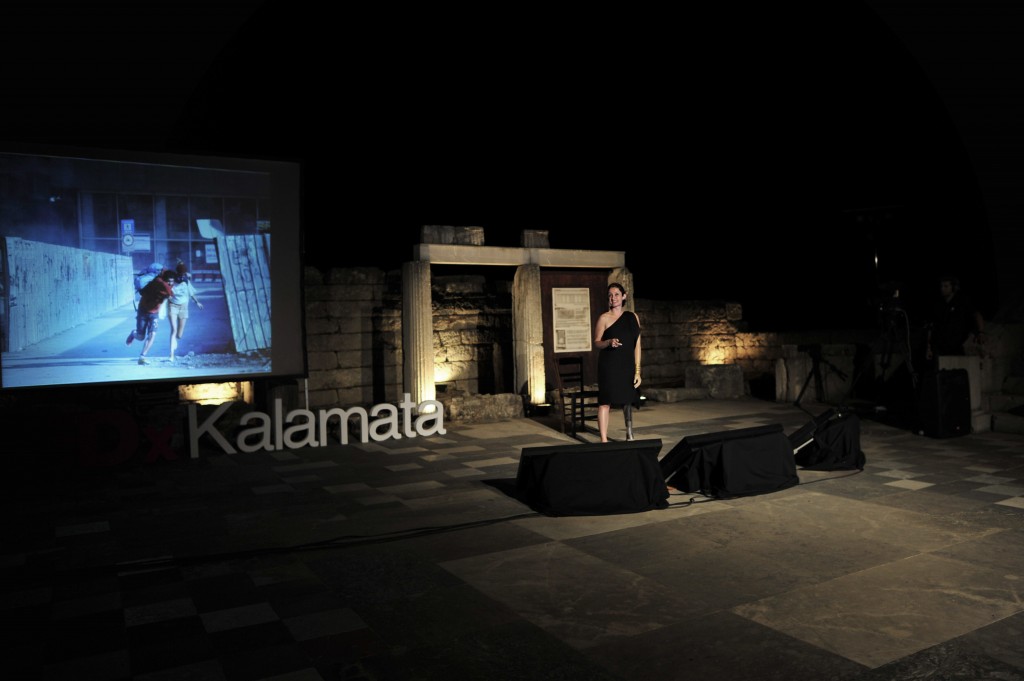I come from a fragmented society. A country proud to serve as a bridge between Europe and Asia yet unable to bridge its’ own differences. This became apparent for the whole world to see during the Gezi Park protests. The uprising came about not as power struggle nor as demands for political freedoms; not as an ethnic struggle or one for democracy.
Ours is a deep disagreement between progress and tradition – a disagreement which has been going on for centuries. It is our cultural divide.
Traditionalists and modernists display their differences in the way they dress or shape their beards. They name their children from the Quran and Sunni tradition, or give them secular names from modern language that mean “Nature” or as my name implies, “Sunrise.”
On one hand, we have a powerful and populous segment of people where humor does not find much of a place; where women only meet other women at home and men only meet other men in coffee shops. People who collectively dislike statues and dancing and like to adhere to the seriosity of faith.
On the other hand, there is another group who use humor in their daily interactions, who tolerate girls flirting, and who drink and eat in restaurants with both men and women. They enjoy going to exhibitions featuring statues and paintings.
These two parts of our society are completely disconnected. Even in moments of national mourning, there are no grey areas. It is difficult to convince each other that all tragedies affect both sides in the same way.
The Government inTurkey, which represents the powerful, traditionalist mass, is very comfortable creating policies tailored only for their supporters. It demolishes statues that it finds obscene. It bans pianists that it finds blasphemous from public life with judicial decisions. It takes excessive interest in people’s sexual lives. It blames the West for secretly plotting against us — for launching everything from contraceptives to theGeziParkprotests as a way to hurt us. It believes our problems stem from “a young generation which lost its morality due to being neglected.” Its collaborators say: “The solution is for this rotten generation to be overhauled and be restored. If they are not made to be religious, then they will be rebellious.”
Thus, our young people are forced to become invisible in a radiant city. But the city radiates on the education, joy and humor of these young people. Nobody, especially the Government, dreamt that they would brave an onslaught to save a few trees in a park. The Government had forgotten that oppression has a much more powerful effect than intimidation.
At the rise of sun on the morning of May 28th, the Government- at the peak of its power- burnt the tents of a group of environmentalists stationed in the Park for over a year-and-a-half. It could not imagine that twitter was also burning hot with posts. As the first three trees were pulled out of the ground, a whole generation rose up. They resisted intelligently, with humor, with gas masks and bravery.
Some uprisings come with a darker side — looting, rape or corruption. The explanation for various uprisings that we have seen in this century can sometimes be over-simplified as explaining that they stem from social alienation, cultural tensions or youth unemployment.
In theGeziPark protests, which I was a part of, this was not the case.
Instead, the protest was a peaceful and profound objection to a lifestyle that was being imposed on us. Gezi youth was not hurt by social alienation and had positive relations with their parents as mothers brought food and fathers obtained gas masks. The protesters were tenacious — they believed they could stand up on the edge of the cliff they had been pushed to. All they wanted was to live in safety, get a good education, be proud of their work, kiss freely and enjoy life as a whole.
The Government believed that adherence to authority was human nature, so the Gezi protests were a real surprise to them. After the initial moment of shock, they decided to severely punish those participating in what they called an act of disobedience to authority. This aggression backfired. Protests spread to other cities. People refused to abandon the streets. The Government refused to abandon violence and insults. Thousands were wounded. Many, tagged by the Government, lost their jobs and the chance to ever find employment in the public sector again. Yet, the paradigm of a “Muslim democracy” — the ideal that was deemed to be suitable for Turkey and was presented to other societies in the Middle East as a ‘model’ — evaporated with the protests in Gezi. The world met the segment of Turkish society that rallied against this fictional religious democracy — that stood and said that aTurkey which loses its modernity would become a prison. Finally, it was understood that the religious clothes of democracy was not a system that embraced different lives at once but that destroys the differences. Therefore, it will not be possible to present it as a model to other countries any longer.
Yet, our enemy is not those administrations which oppresses its people with political power but those which crushes its people and social freedoms with the power of the tradition. The tradition that keeps intolerance alive — be it discriminating based on gender or disability or restricting our rights to education and a protected nature for future generations.
The heroes of this new brave world are young people with names like Ethem, Dilan… Or Ceyda, who did not fall in the face of poisonous tear gas in Gezi. And nineteen-year-old Ali Ismail, beaten to death for trying to save trees, whose Facebook profile read: “My country: The World. My Race: Humanity. My Religion: To do good.”
They taught us that in the face of unjust power, peaceful resistance is a durable force. They remind us that there is always an open path ahead of us, and that we can always find our way.
At pivotal moments throughout history, there have always been grey areas and there likely will be in the future. Courage now lies not in the black and white, as in the past, but in the grey.
This post is part of a series produced by The Huffington Post in association with TEDxKalamata’s conference on July 26-27 in Greece. For more information, visit www.TEDxKalamata.com.
http://www.huffingtonpost.com/safak-pavey/courage-now-lies-in-the-g_b_3678546.html

Photo by Aris Messinis
